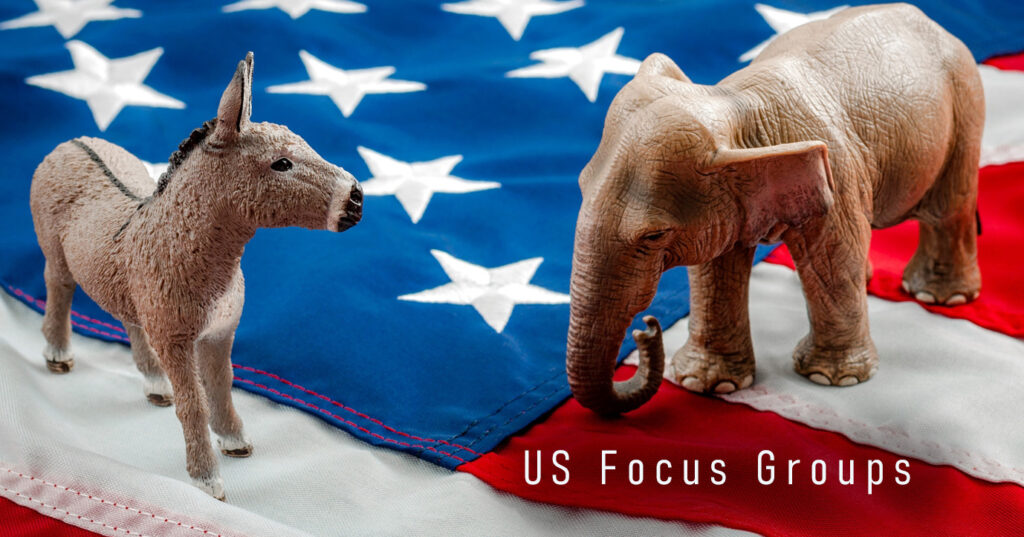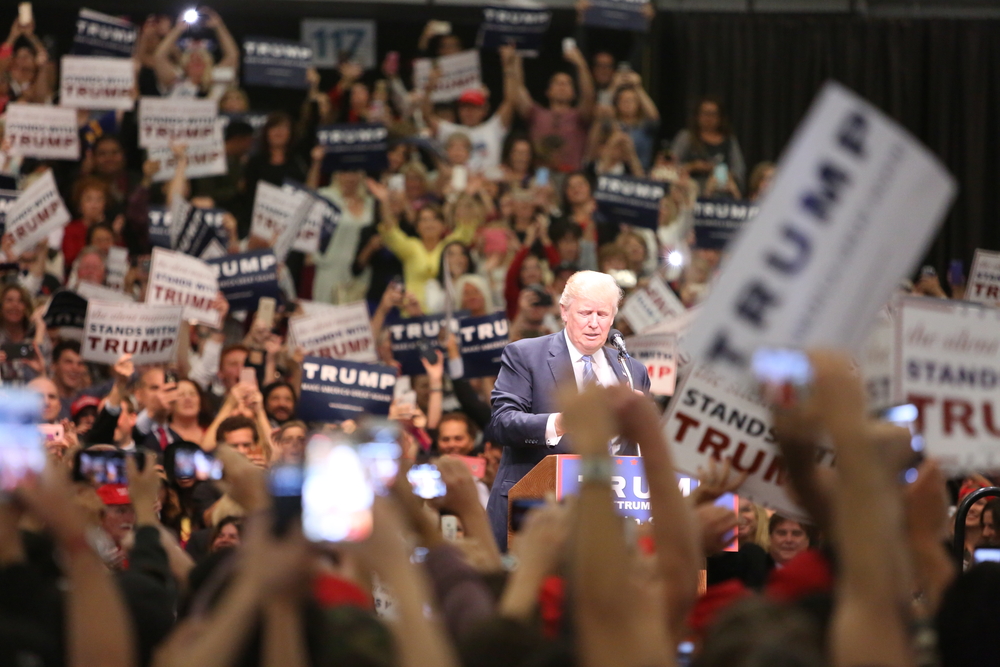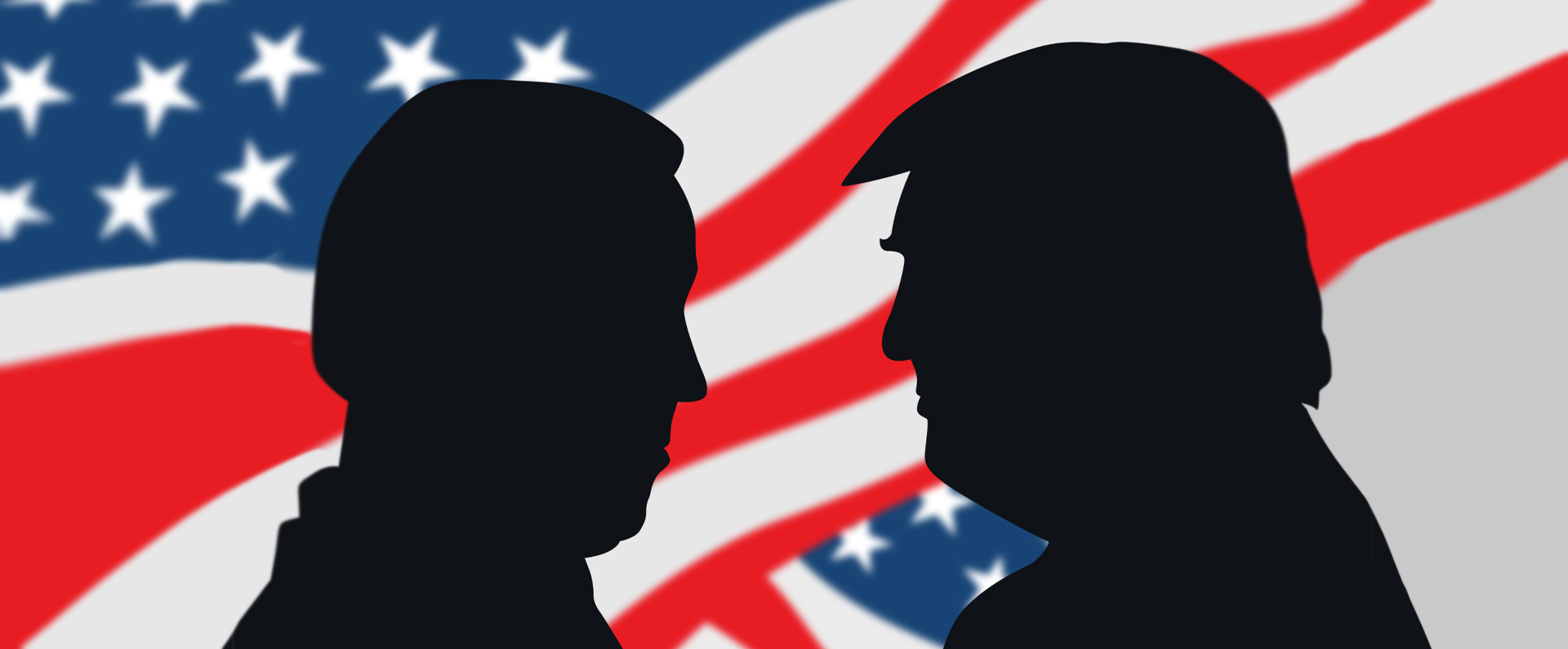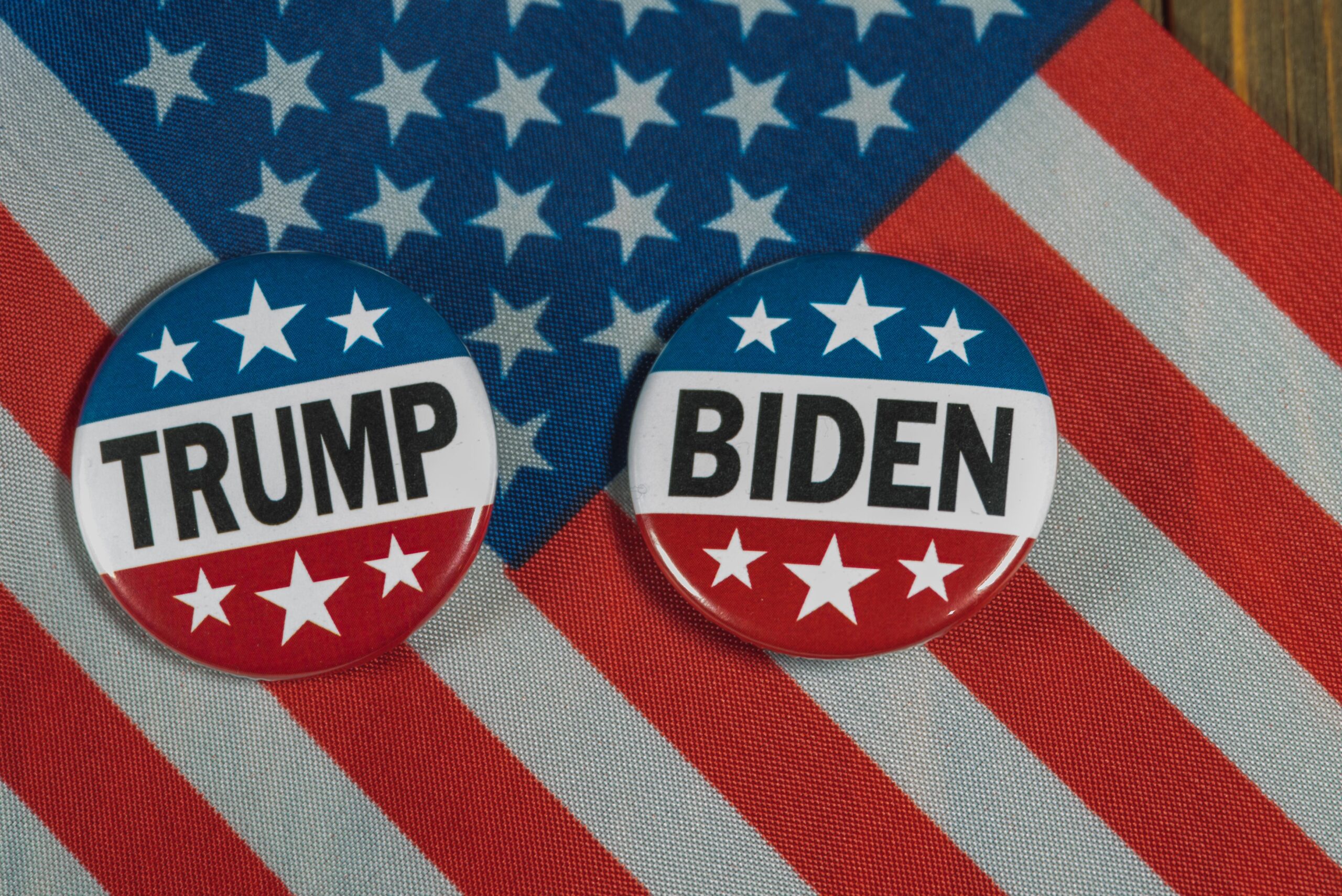
In last week’s Philadelphia focus groups, Donald Trump’s supporters brushed aside the recording of their candidate’s unseemly conversation about women. Since then, a number of women had come forward to claim he had assaulted them – was this beyond the pale? Perhaps surprisingly, none of the Trump supporters we spoke to in Phoenix this week argued the allegations were false – just that there were more important things at stake. “I don’t condone it, but I’m looking at our country, and what our country needs, and the issues;” “What Bill [Clinton] did, everyone says is bad and hideous. What Trump did it bad and hideous. Did it affect how Bill ran the government? Some people loved the way he ran it;” “Think about the Kennedys and their escapades. It was fine for everyone, because it’s the Kennedys… Then all of a sudden we have Trump, and it’s like, oh my God, hide the children!”
Wild West
Apart from 1996, when it backed Bill Clinton, Arizona has voted for the Republican candidate in every presidential election for the last sixty-four years. Mitt Romney carried the state by nearly nine points in 2012. Yet this year, the state is too close to call and some analysts give Hillary Clinton the edge. Meanwhile John McCain, the state’s six-term Republican Senator, faces what he describes as the most difficult election of his career. What on earth is going on?
“Arizona has been trending more purple, more of a toss-up state, for some time now,” says Rebekah Sanders of the Arizona Republic. Though all the state-wide offices and both chambers of the legislature are held by Republicans, “Democrats keep saying that they’re going to make gains and they’re going to turn Arizona blue. I’ve been sceptical that they were going to accomplish that this year, but of any year it looks like this may be their best opportunity.”
It will be tough for them, as Arizona retains its own political character. “Our history, of course, is kind of a Wild West, I would say more libertarian leaning. It’s very much about independence and being left alone by the government.” Even so, as well as Donald Trump, the polarising figure of the immigration hard-liner Sheriff Joe Arpaio could spur turnout among the Hispanic voters who constitute more than a fifth of Arizona’s electorate. Then there are ballot measures on the minimum wage and the legalisation of marijuana “and you’ve got significant spending, it looks like, coming down the pike now from the Clinton campaign.”
On immigration, always a live issue in a border state, Sanders said Arizona had been “an incubator for many of the policies Donald Trump has been touting this election, and for a conservative approach to immigration nationally.” But compromises have also come out of the state. Its two Senators, John McCain and Jeff Flake (who famously said he would not go to the Republican National Convention in Cleveland to see Donald Trump nominated because he had to mow his lawn) have been “some of the leaders on immigration reform in Congress, saying, look, we want border security, we want immigration enforcement, but we realise that to reform we also have to compromise on things such as a path to citizenship for folks who are here illegally now.”
Borderline
One factor that has made this state more competitive in this cycle has been a concerted drive to get Latinos registered to vote, led by Petra Falcon of Promise Arizona. The effort began in 2010 during the debate over SB1070, a state law that, according to Falcon, “gave license to law enforcement officers to quite frankly profile people of colour. If they looked like they were an immigrant they were subjected to being stopped whether they were in a car, whether they were crossing the street, whether they were in a park… And if they were undocumented or couldn’t prove that they belonged here, had status, they were most likely going to be deported.” Voter registration “became one of the tactics for us to respond to the hateful legislation”. The organisation has since helped more than 50,000 Latinos onto the voting register in Arizona.
According to exit polls, George W. Bush won 44 per cent of the Hispanic vote in 2004, but Donald Trump’s approval ratings among Latinos are in the low teens. How did Falcon explain such a dramatic change? “It’s the immigration issue. It’s the language that he uses to describe immigrants or Latinos, accusing them of being criminals, of crossing the border and coming over here just to sell their drugs or rape women, and take jobs away from the citizenry. It’s the same language that the Sheriff Joe Arpaios, the Russell Pearces [another official who has taken a tough line on immigration] in Arizona used to divide our state, and it’s the same language that is dividing our country now – this language of hate, this language of racism, this language of profiling.”
Trump’s position on immigration might affect how Latinos saw other Republican candidates in this race and in the future, it was not only the GOP who should be concerned. “I always think that voters, and in this case Latino voters, need to feel like they have a relationship with a political party, and I do think, quite frankly, both parties have not done all that great of a job, and that’s why they are registering more independent across the board.” New voters were asking for more information “on what the candidates represent, what issues they are willing to fight for, and among Latinos the two issues they are paying attention to and how they relate to the candidates are around immigration, and education.”
Some of this disquiet was reflected in our focus groups in the city with voters from a Hispanic background. “Even though I’m a registered Republican there’s no way I can bring myself up to voting for Trump,” said one. “I honestly think he has brought up a lot of bad American feelings towards immigrants.” Another told us “I’ve been raised in Arizona, I’ve been here 54 years, I don’t know a lick of Spanish, and it bothers me because his first attack was, we’re going to get rid of all the criminals and build this great big huge wall”. Everyone wants to keep the drugs out and stop illegal immigration “but it’s just the way he first came out and started talking about it, it wasn’t a good feeling for me.”
For some, Trump’s rhetoric told them something about the Republican Party in general. “They have this big aura that they distance themselves from immigrants, that they don’t like immigrants from Mexico, or from pretty much anywhere… You have to be an inclusive party, especially nowadays, you have to welcome everybody if you want to win a democratic election.”
But these voters were by no means universally hostile to Trump or his policies, even on border control. “I’m a registered Democrat but what leads me to want to vote for Trump is the immigration, because the Democrats haven’t done enough about it… I’m a first generation American, my parents are immigrants, and they went through a process. It’s not fair for people from other countries that have to wait longer because they don’t happen to share a border with the United States.”
A profoundly different country
John Sopel, the BBC’s North America Editor, is covering his fourth presidential election. I asked him how Washington differed from Westminster from a reporter’s point of view. “When you cover British politics, if you know a few members of the Cabinet, a few members of the Shadow Cabinet, a few senior civil servants, a couple of trade union leaders, you’ve broadly got the waterfront covered.” Here, though, there were fifty states, each with their own intricate politics, not to mention the State Department, the Pentagon, the White House, and the two houses of Congress. “Before I came here I couldn’t understand why elections went on as long as they did. Now that I’m here, I do understand why I have been covering a presidential election for the past 16 months.”
The two teams are predictably different to deal with. The Clinton campaign is very disciplined, but “dealing with them can be a bit of a nightmare, to be honest. ‘You will stand here, you will wait for this, you will not do that’ – you are treated like a little school child on a school trip.” And their approach was sometimes counterproductive. When Hillary collapsed at the 9/11 memorial, leading to the eventual admission that she had been suffering from pneumonia, “the way her communications team communicated was woeful. They didn’t give us honest, straight answers to straight questions. And unwittingly, she sows seeds of mistrust by behaving like that towards the media when all you want is a straight answer so you can get on with your day and do your reports.”
The Trump campaign, meanwhile, had been “much more anarchic”, but things were changing. “Until a month ago, Donald Trump had had a very, very easy ride with the media, I would argue. And I would say that, actually, the media created Donald Trump, in the sense that they covered anything that he was doing to the exclusion of everybody else. So he got massive free airtime.” But recently, the mood had turned ugly. “Covering Donald Trump now, at the moment, is quite unpleasant..” He turns on the press at rallies, and it is “a very, very hostile atmosphere.”
Why does Jon think this election differs from the previous three? “Because there are no rules in this one. I’ve done politics for a long time. I used to know where magnetic north was on my compass.” If a British party leader had endured a month of stories about tax and women like Donald Trump, “they would be dead. They would be toast.” The fact that the election seems to be without conventional rules is “why I think anyone who says, ‘you know what, I think this election is over, we’ve got to write Donald Trump off, it’s President Hillary Clinton’, I think they’re wrong. I think we don’t know. And I think we don’t know what’s going on in the minds of the American electorate. There is such profound anger, disillusionment, sense of let down with conventional politics, that they are prepared to do something that would be, by American standards, without precedent – vote for someone without experience.”
People outside the United States often fail to grasp this point, assuming Hillary would win because of her CV and underestimating the level of antipathy many Americans feel towards her. In fact, Jon thinks, outsiders can easily misunderstand American politics, and the country itself. “British people in particular think America is just the same, only bigger. And actually, America is a different country, with different values, with a different way of operating and being, and I think the British completely fail to get how different America is from Great Britain. You look at guns, you look at attitudes towards government, you look at any number of different issues, and America is a profoundly different country.”


